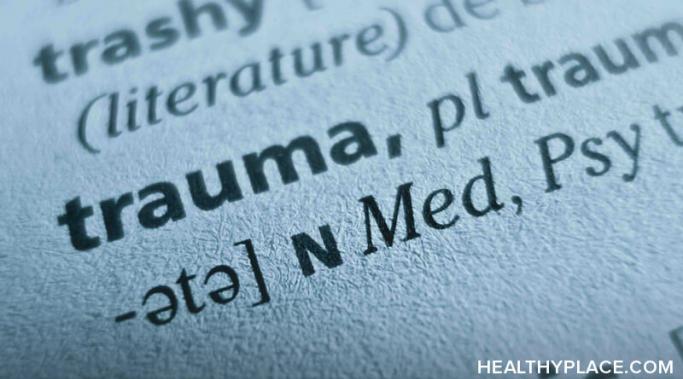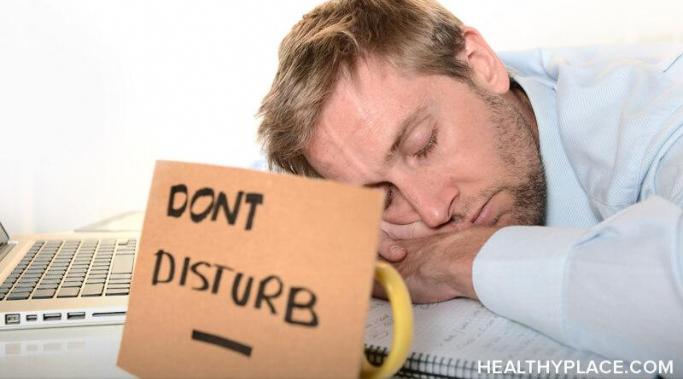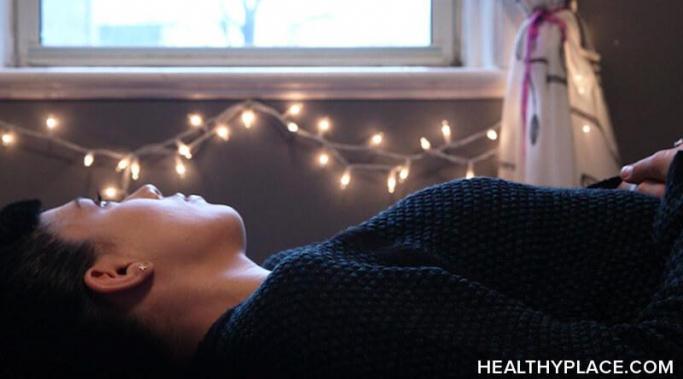Learning that I had posttraumatic stress disorder (PTSD) was the first important step in my trauma recovery. Symptoms of the disorder typically start within three months of a traumatic event but in some cases, there can be a delay. Because of PTSD stigma, people often dismiss symptoms of the disorder until it is no longer possible to ignore them.
PTSD Symptoms
Grounding techniques are a valuable coping tool for people suffering from posttraumatic stress disorder (PTSD). At its core, PTSD is a disorder that keeps people stuck in the past. Grounding techniques, on the other hand, help people with PTSD connect with the present. Finding grounding techniques that work for my PTSD symptoms has been a journey. Grounding is a very personal experience, and what works for other people doesn't always work for me. Thankfully, there are plenty of techniques to choose from when it comes to grounding yourself.
Life is tough at the moment. Every day that passes by seems to be filled with anxiety after anxiety, and there is no clear end in sight. COVID-19 has thrown all our lives into disarray, and coping with mental health issues is harder than ever. Being stuck at home is undoubtedly difficult for everyone. Human connection is an essential part of life, and being unable to connect with friends and family members because of the coronavirus is taking a toll on all of us. But for people with serious mental illnesses such as posttraumatic stress disorder (PTSD), social isolation can present unique challenges.
Nightmares are one of the most common symptoms of posttraumatic stress disorder (PTSD). While most people experience a nightmare or two in their lifetime, up to 72% of people suffering from PTSD develop recurring nightmares as a result of the disorder. I am one of those people. I started experiencing nightmares as a result of PTSD when I was sixteen. Almost eight years later, I still get them every time I close my eyes to sleep. Coping with daily nightmares (and the poor sleep quality that can result) has been difficult, but I have found ways to manage them over time.
Posttraumatic stress disorder (PTSD) can get worse before it gets better when you start therapy. Find out why that's normal and how to handle it.
Posttraumatic stress disorder (PTSD) and intimate relationships don't always go well together. On top of that, dating when you are in your 20s is tough. Finding people to date in real life is next to impossible, and online dating can be a fiasco. If you ask around, you'll find that many people in their 20s know and understand this struggle--myself being one of them. What most people don't understand, however, is how much more difficult dating and forming intimate relationships can be when you're suffering from PTSD.
Posttraumatic stress disorder (PTSD) is exhausting. I often describe the disorder as a brain at war with itself, fighting and pulling different parts of your mind in all directions. The thoughts, worries, and instincts circling through your head can get so loud at times that it makes you want to cover your ears.
When you're living with posttraumatic stress disorder (PTSD), the holiday season can feel like a nightmare. Holidays can be stressful for everyone, but trying to balance the activities of the season when you have PTSD can be very overwhelming.
Posttraumatic stress disorder (PTSD) is a difficult disorder to carry throughout life, so you need to learn how to manage PTSD triggers. The symptoms of PTSD can be debilitating, and it's hard to predict when they're going to strike. Any sight, sound, smell, or conversation can cause an unwanted traumatic memory to pop up in your mind, disrupting your sense of peace. Learning to cope with PTSD starts with identifying the triggers that cause you distress. If you are able to predict what types of stimuli might cause you to get stuck in a traumatic memory, you will be better prepared to manage the PTSD triggers throughout your day.
An important aspect of healing and learning to live with complex posttraumatic stress disorder (PTSD) is recognizing when it's time to take a step back from life's many responsibilities and give yourself a little self-compassion and self-care. Lately, I find myself being pulled in 100 different directions, which is causing a flare-up in my complex PSTD. To that end, while it's been my honor to write for you, it's time for me to listen to my own words and say goodbye to "Trauma! A PTSD Blog."









